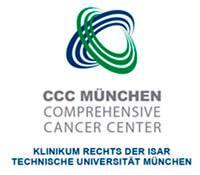Hyperparathyroidism develops due to high parathyroid hormone levels in the blood. Parathyroid hormones are produced by the parathyroid glands and regulate calcium metabolism. An enlargement of one of these glands usually causes the overproduction of parathyroid hormones. In Germany, hyperparathyroidism can be cured with non-traumatic surgery. Patients get rid of the disease once and for all. The operation restores bone mineral density and stops the formation of kidney stones.
Content
- Why is hyperparathyroidism dangerous?
- Conservative therapy
- Surgical treatment
To treat hyperparathyroidism, doctors perform an operation to remove a parathyroid adenoma. Healthcare professionals less often resort to conservative treatment: it is less effective and allows the specialists to control only the mildest forms of the disease.
You can undergo your treatment in one of the following hospitals: University Hospital of Ludwig Maximilian University of Munich, University Hospital Carl Gustav Carus Dresden, or Hospital Neuperlach Munich.
Please use the services of the Booking Health company and we will fully organize your trip. We will recommend a clinic and a doctor, tell you about modern treatment methods, make an appointment on the preferred date, help you to apply for a visa and prepare medical records, control prices for medical services provided, and take care of your flights and transfers. We will also provide interpreting services.
Why is hyperparathyroidism dangerous?
Hyperparathyroidism can occur in one of three forms:
- manifesting hyperparathyroidism is characterized by symptoms and complications;
- mild hyperparathyroidism causes no symptoms;
- normocalcemic hyperparathyroidism is a condition with normal blood calcium levels.
In turn, the manifesting form of the disease can be bone (bone lesions), visceral (lesions of the organs, primarily the kidneys) and mixed.
With a long course, the bone form of hyperparathyroidism causes bone tissue demineralization, osteoporosis, and low-energy fractures. The most common fractures are those of the vertebrae, the radius, and the femoral neck.
A constant calcium secretion in the urine damages the kidneys and causes the formation of stones.
Hyperparathyroidism often causes manifestations in the cardiovascular system and the gastrointestinal tract: high blood pressure, arrhythmias, gastric and duodenal ulcers, or pancreatitis.
The most dangerous acute complication is a hypercalcemic crisis. This develops when blood calcium levels exceed 3.5 mmol/L. The crisis can be triggered by bone fractures, prolonged immobilization, pregnancy, and infection. This condition requires emergency surgery to remove a parathyroid adenoma. Mortality in patients with hypercalcemic crisis exceeds 50%. Therefore, to avoid this complication, hyperparathyroidism should be timely cured.
Conservative therapy
Conservative treatment can be used when a patient has normal blood calcium levels and does not have any complications. Nonetheless, such patients require medical supervision, as the disease can progress with the development of indications for surgery.
Treatment options are as follows:
- a diet with a restricted calcium intake to 1 mg per day and an increased fluid intake to 2 liters per day;
- antiresorptive therapy and calcimimetics.
None of the conservative therapy methods can be compared with a surgical intervention in their efficiency. Drug treatment for bone hyperparathyroidism is considered acceptable if calcium levels fall below 2.8 mmol/L, bone mineral density stabilizes, and no new fractures occur.
Surgical treatment
Surgery can cure hyperparathyroidism once and for all. Doctors remove the gland that produces excess parathyroid hormones. Here are some of the indications for surgical treatment:
- persistent hypercalcemia with a calcium concentration in the blood 0.25 mmol/L above the norm established in the laboratory;
- bone fractures;
- osteoporosis (T-score -2.5 SD or less);
- kidney stones;
- kidney failure;
- hypercalciuria (urinary calcium excretion) and other risk factors for stone formation;
- any manifestations of hyperparathyroidism in the internal organs;
- age less than 50 years.
Previously, hyperparathyroidism treatment involved a cervical revision, unilateral or bilateral. This is a traumatic operation with a high risk of complications. Nevertheless, this surgical intervention is still used in countries with poorly developed medicine.
In Germany, the main treatment is minimally invasive (selective) parathyroidectomy. This is a non-traumatic intervention with a short rehabilitation period. Doctors make minimal skin incisions only in those places where a parathyroid adenoma is found. This is detected with imaging methods and removed. The rest of the glands are not visualized with imaging methods and are not damaged.
This operation requires two conditions to be met:
- high-quality medical imaging to find an adenoma;
- the possibility of determining parathyroid hormone levels in the blood right during the operation to understand whether hyperparathyroidism is cured after removal of the enlarged gland.
Doctors use various methods to visualize the neck organs: ultrasound, technetium-99 radionuclide scanning, high-resolution CT scans, and 4D CT scans. Different medical centers use different methods of diagnostics, depending on doctors' preferences and a hospital's technical capabilities.
The efficiency of the operation is 95%, and in the best clinics in Germany, it reaches 98%. The success of the operation is confirmed 15 minutes after tumor removal: this is how long it takes for parathyroid hormone levels to decrease by 2 times or more.
You are welcome to make your appointment at a clinic through the Booking Health service to undergo your treatment of hyperparathyroidism in Germany. Our website presents the best German hospitals. You can compare the cost of medical services and choose the option that suits the price. The Booking Health specialists will help you to choose a clinic in Germany and organize your trip.
Authors:
This article was edited by medical experts, board-certified doctors Dr. Nadezhda Ivanisova, and Dr. Bohdan Mykhalniuk. For the treatment of the conditions referred to in the article, you must consult a doctor; the information in the article is not intended for self-medication!
Our editorial policy, which details our commitment to accuracy and transparency, is available here. Click this link to review our policies.
Sources:
MedicineNet
NHS
UpToDate
















